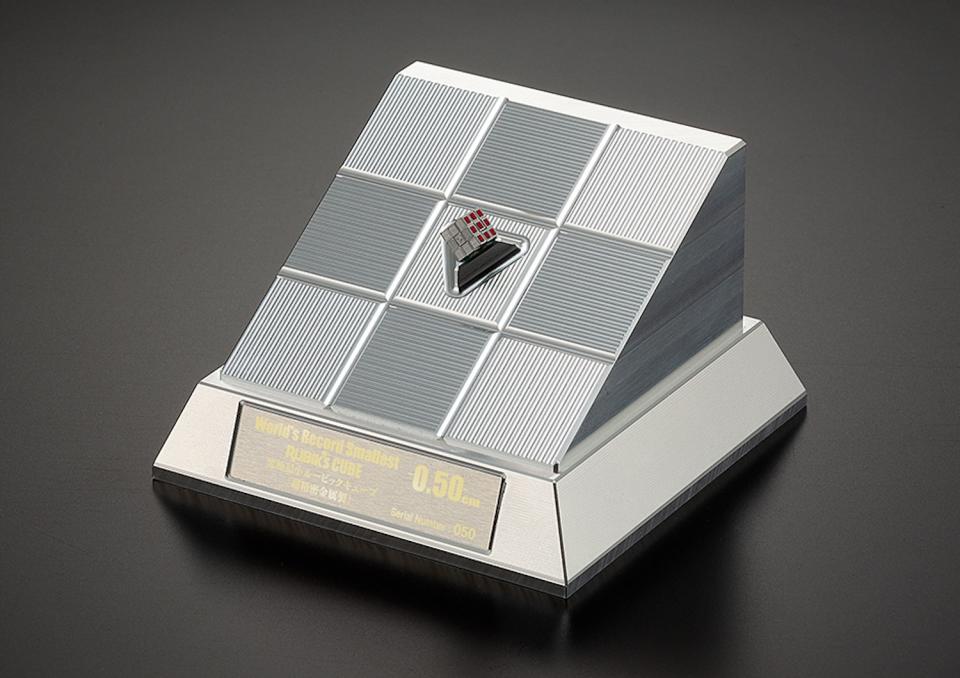The makers of the Rubik’s cube went small to celebrate the iconic puzzle toy’s 50th anniversary. Thanks to a collaboration with Japan-based Megahouse and Iriso Precision Company, designers have completed what is now the official Guinness World Record holder for the “smallest rotating puzzle cube.” But even at just 0.5 cm (0.19 in) wide, the miniscule Rubik’s is totally functional—although you’ll likely have difficulty handling a device that’s roughly the width of three grains of rice.


To assemble the newest take on the cultural touchstone toy, engineers relied on a combination of fine-tuned machinery and human talent. First, the underlying foundation to the mini-Rubik’s cube is what’s known as “micro cutting.” During this process, individual parts as small as 0.0001 mm (far thinner than a human hair) are carefully etched from metal while designers also keep a close eye on subtle influences from pressure, temperature, and vibration. Then, as DesignBoom recently explained, “craftsmen must rely on data and their mental image of the final product instead of focusing on and watching the process directly.” From there, individual blocks just 0.16cm (0.062 in) wide are installed together by hand to form the toy’s final, record-breaking version. To take things even further, the team added colors to each cube side, as well as engraved a miniature Rubik’s cube logo on one of the central blocks. As Interesting Engineering notes, the name is so small that it’s nearly invisible to the naked eye.




“The most difficult part of the process of creating this design was figuring out how to adjust the gaps between the parts,” one designer said in the puzzle’s announcement video, translated to English on YouTube.
Each of the limited run Rubik’s cubes arrives in a (much) larger aluminum case that resembles a small trophy display with the individual toy’s serial number. If any gluttons for punishment are truly dedicated, then their best bet is to apparently rely on tweezers to carefully rotate and complete the puzzle. Such precision likely means that it’s highly unlikely anyone is going to be setting any speed records anytime soon.
[Related: In blink of an eye, robot sets new Rubik’s cube Guinness World Record.]
But such a small experiment has a sizable price tag. The mini-cubes are retailing for 777,777 yen each, or approximately $5,250 USD. Given that a standard model currently sets buyers back just $7.99, it will likely appeal to a very specific echelon of toy collectors.







